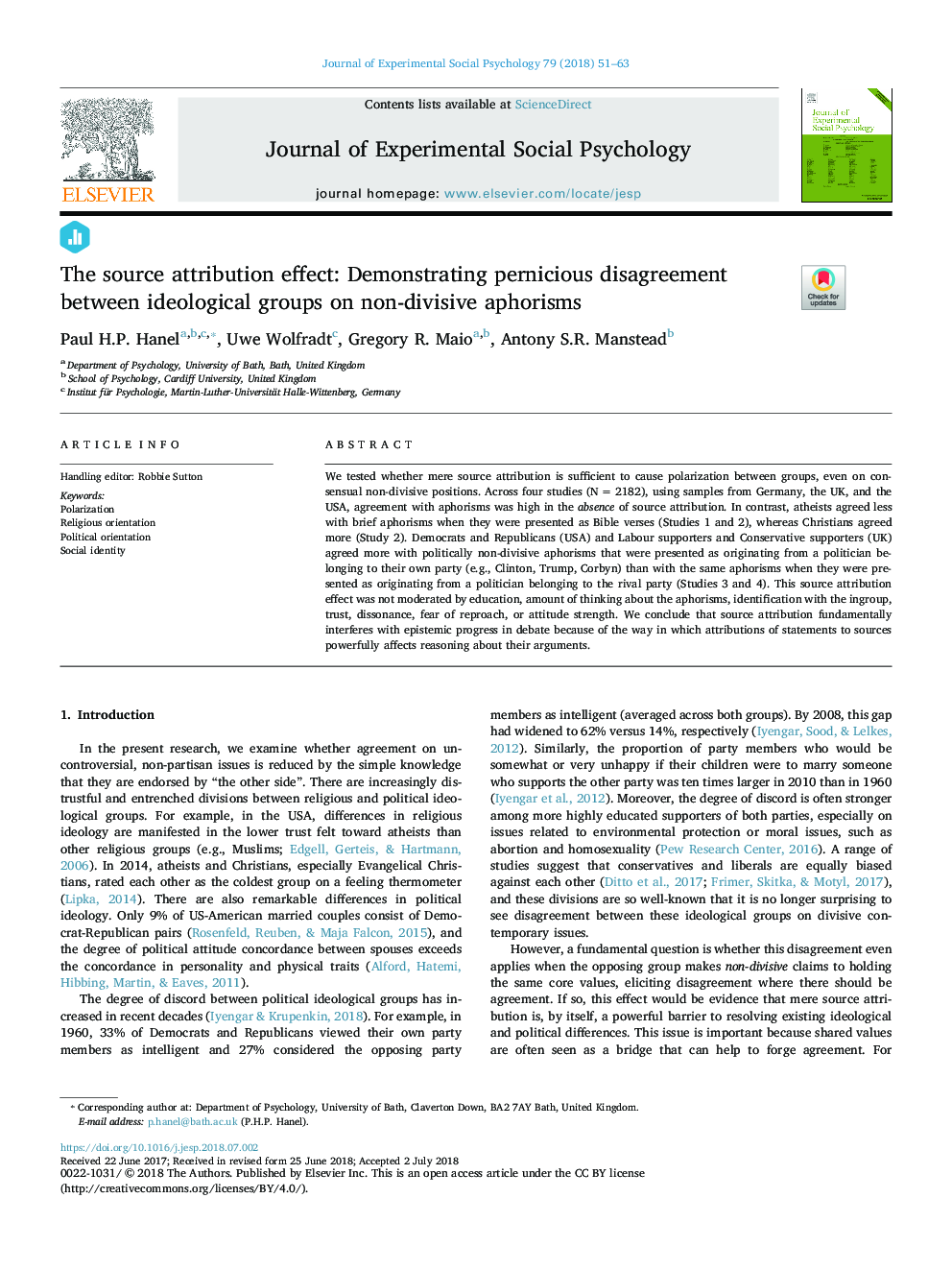| Article ID | Journal | Published Year | Pages | File Type |
|---|---|---|---|---|
| 7323896 | Journal of Experimental Social Psychology | 2018 | 13 Pages |
Abstract
We tested whether mere source attribution is sufficient to cause polarization between groups, even on consensual non-divisive positions. Across four studies (Nâ¯=â¯2182), using samples from Germany, the UK, and the USA, agreement with aphorisms was high in the absence of source attribution. In contrast, atheists agreed less with brief aphorisms when they were presented as Bible verses (Studies 1 and 2), whereas Christians agreed more (Study 2). Democrats and Republicans (USA) and Labour supporters and Conservative supporters (UK) agreed more with politically non-divisive aphorisms that were presented as originating from a politician belonging to their own party (e.g., Clinton, Trump, Corbyn) than with the same aphorisms when they were presented as originating from a politician belonging to the rival party (Studies 3 and 4). This source attribution effect was not moderated by education, amount of thinking about the aphorisms, identification with the ingroup, trust, dissonance, fear of reproach, or attitude strength. We conclude that source attribution fundamentally interferes with epistemic progress in debate because of the way in which attributions of statements to sources powerfully affects reasoning about their arguments.
Related Topics
Life Sciences
Neuroscience
Behavioral Neuroscience
Authors
Paul H.P. Hanel, Uwe Wolfradt, Gregory R. Maio, Antony S.R. Manstead,
